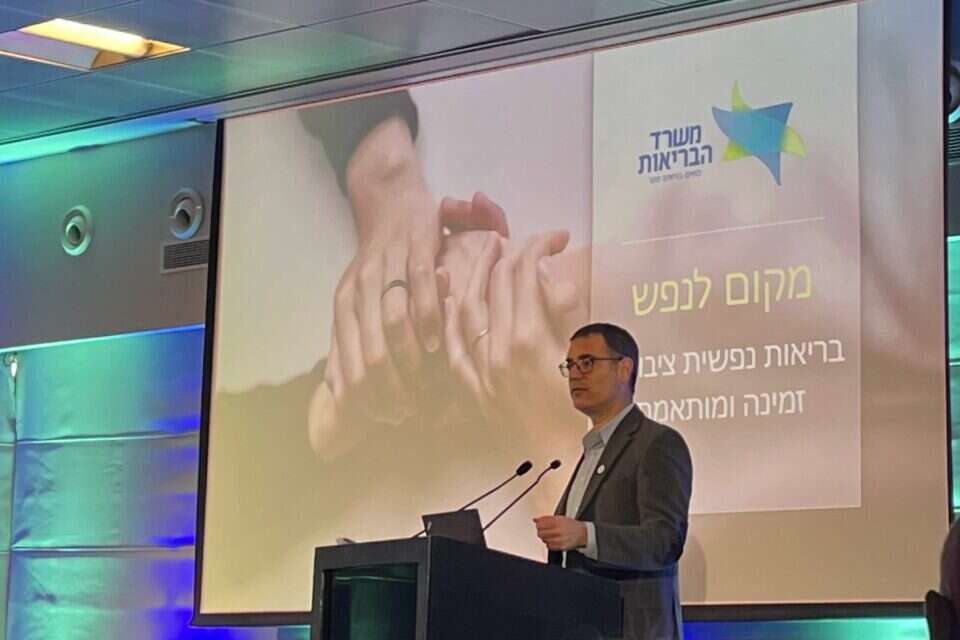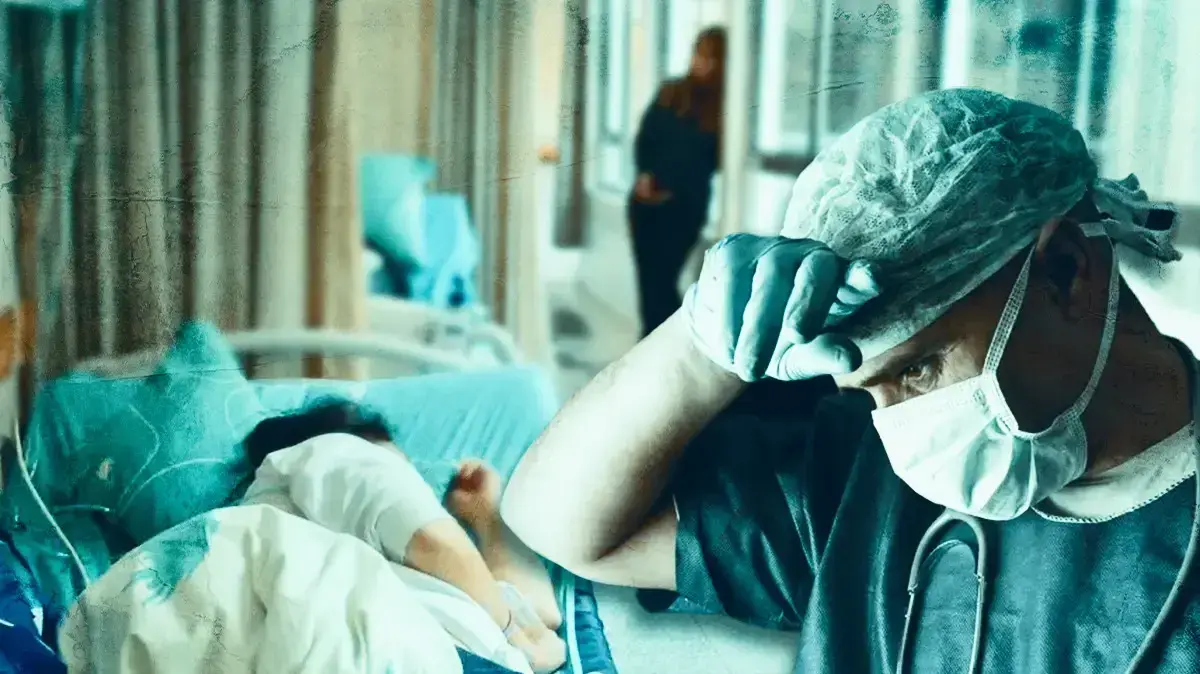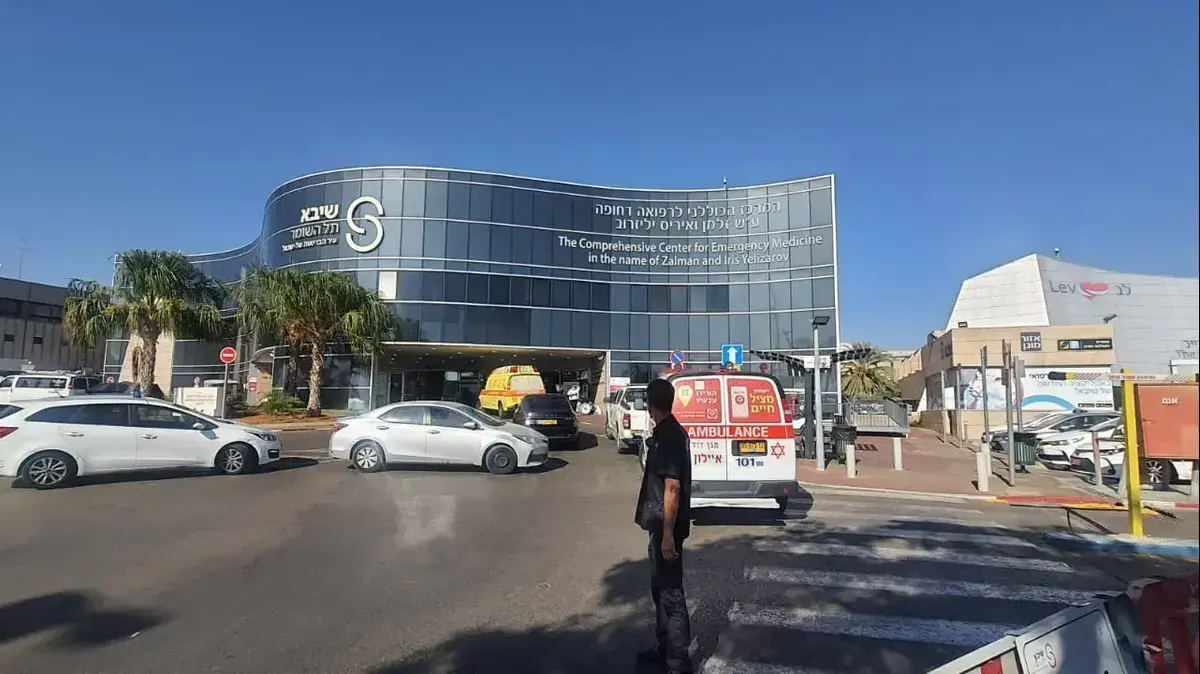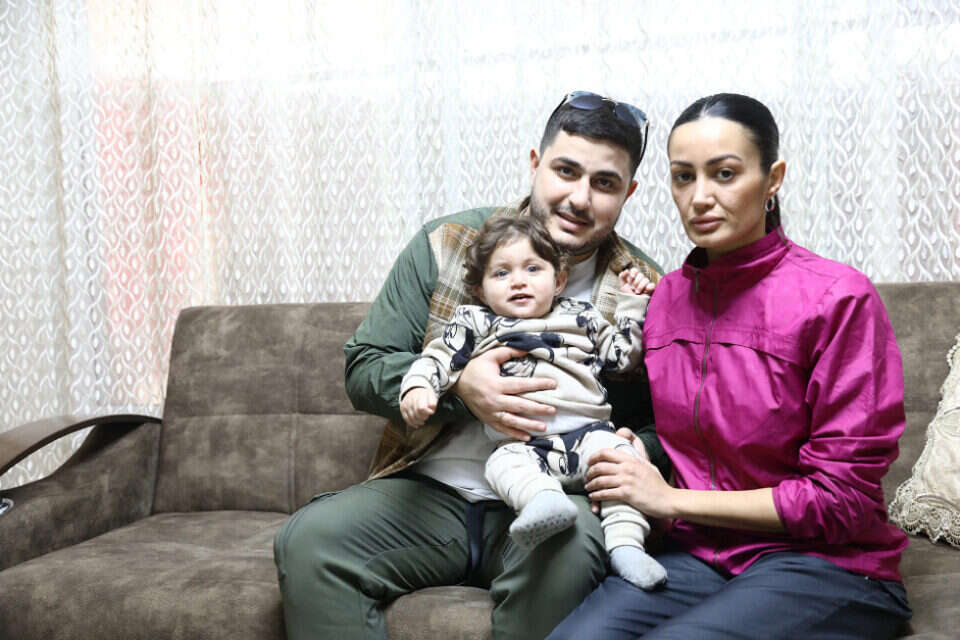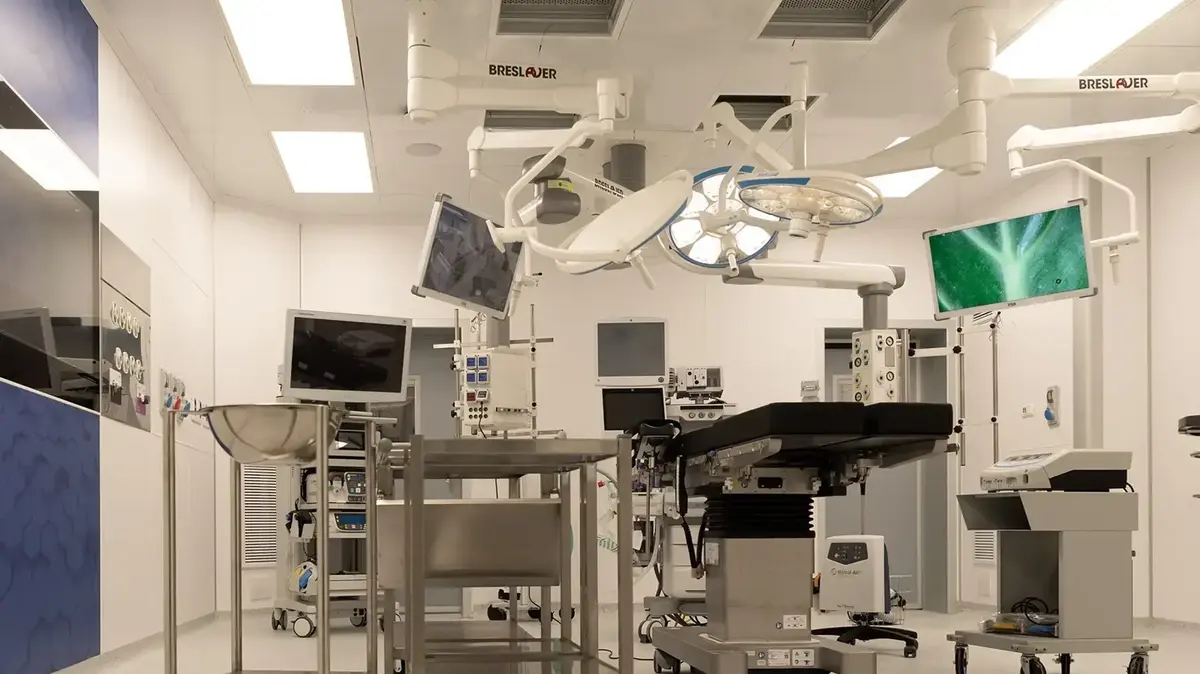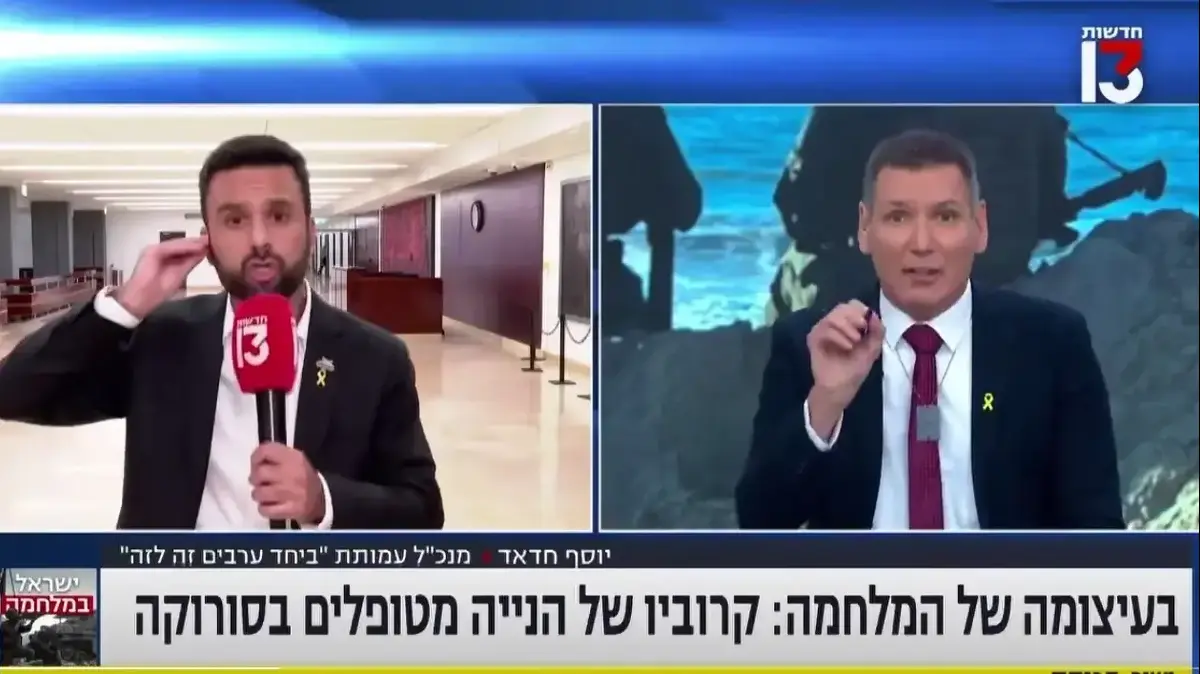Health officials have tried to explain the alarming sequence of events at Be'er Sheva Hospital, warning of the following suicide: "Addressing the wall, staff in Soroka works much more because of staff shortages" • "Four doctors a year and a half exceed statistical probability"
Soroka Hospital // Photo: Dudu Greenshpan
The recent suicide at Soroka Hospital last weekend, joining a succession of similar tragic events at the hospital, is causing concern among health care officials, who warn that it is not a coincidence and whether or not to deal with the crisis - the next case will come sooner or later.
Professor Moti Ravid, director of the Salvation Hospital, told "Israel Today" about the pressure doctors work in hospitals, and the erosion phenomenon they are experiencing, but warned that the sequence of cases in Soroka is exceptional, and red lights should be turned on at the hospital's management. "Today, more and more people are talking about erosion of doctors in the Western world, and some even define the situation as 'burning doctors,' but four doctors at the same hospital are unlikely," said Ravid.
"Needless to say, this problem is probably more serious in Soroka," Ravid continued, trying to speculate on possible reasons. Among other things, he noted his hospital load and geographical remoteness, which imposes a degree of loneliness on his staff.
"The problem is more serious in Soroka." Professor Moti Ravid // Photo: Coco
More on:
• "It's only a matter of time before the next doctor does an extreme act"
• "Fear of horrific abandonment of patients in Soroka"
• Violence in Soroka: A valid patient is treated by a doctor
"Doctors feel trapped, under load and loneliness"
"Soroka is a busy medical center, which is the only hospital in a very large area. The geographical distance and awareness of it to the other large centers is also great," Rabid explained. "It is also a hospital that is fighting a survival war for its status. It is a university hospital but located in Be'er Sheva and the doctors who work. There are fewer options to get a job elsewhere, and have to deal with problematic transportation - meaning that the hospital staff may feel trapped, under load and loneliness, and there is no choice. "
"The staff develop a great commitment and sometimes they feel that they are not living up to their own expectations. In some cases this is due to their problems and in some cases because of problems in the workplace: large load, missing equipment. Labor relations may not be good enough and there is no social cohesion in departments and at home. The patients, "he went on to say," to this day, despite the suicide cases, we have not heard about a makeover in the hospital's management approach. "
"People testified to the doctor's plight." Ilan Rabinovich // Photo courtesy of the photographer
"There were warning signs - no one is surprised"
Psychiatrist Ilan Rabinovich also referred to the conditions under which physicians work, and the difficulties they face, but also added that the sequence of cases in Soroka is exceptional and worrying: "The rate of suicides in medicine is among the highest in other professions, especially in hospitals," he said. "Responsibility and commitment bring difficulty to life, but after all, it's a fourth suicide in a year and a half when two doctors are in the psychiatric ward.
Rabinovich went on to say that the most worrying thing is the fact that many have warned against a case of hospital suicide. "There were signs of warning - no one was surprised. People testified that they saw this doctor's distress and his powers. Some of these doctors also left some letters telling them about inconsideration and attacking the management and the medical establishment.
Will there be a fifth case? Dr. Avi Shimoni (right) and Dr. Alex Berezovsky, doctors from Soroka Hospital who committed suicide
"The system here has to go through a shock. The address was here on the wall and after the third suicide they said the fourth suicide was on the way and now it is the same situation," he continued. "Incidentally, examination committees were established and started to check the situation with the doctors but it was not good. That's what he committed suicide in the end. That means the remedies the system gave didn't provide. " Rabinovich added that "forming another committee is not what is needed here. Otherwise, these things will be said again after the next case."
Professor Gabi Barbash, a former Ichilov hospital manager, urged Soroka's management to work diligently to prevent the next case. "I would do what it takes from a complex medical system administrator in this situation, I would stop everything and talk straight to all sectors of the hospital. I would talk to all department heads, all concerned and all hospital components in each area to pinpoint the problem and understand what "I went out of my way and find out where the failure is. That's what I would do in that case, it's also what is expected of a leader," he said.
"tragedy". Professor Gabi Barbash // Photo: Dudi Waknin
"I hope you start to understand in Soroka what's going on"
Ravid told of a case he encountered in the hospital where he had to treat a doctor who was showing signs of distress. "A couple of years ago, we had a case of childbirth, two days after hospitalization. It was a shock to the staff of that department. Organizing psychologists and initiating conversations, both group and individual, who identified that they were under greater pressure are beyond all investigations," he said.
"If we recognize that someone has been wrong several times, we are going to check maybe he is in tension, maybe he has family problems," Ravid explained. There was a case where we identified one doctor who turned out to be very ill and he did not report. Home events have led to a decline in his performance. When we found out about the case, we gave him as much help as he could. "
"According to what we heard in the media and on the doctors' internal channels, we did not hear that there was a change in Soroka. This place may be more difficult than others. Soroka has a good reputation there, with many very foreign centers and an emergency hospital that drains all the south where most of the security operations are today. "All these things add to the doctors' internal burden and burn, and I hope they start to understand what's going on," Ravid concluded, and Barbash had one more word to summarize, which describes most of all what happened - a tragedy.


